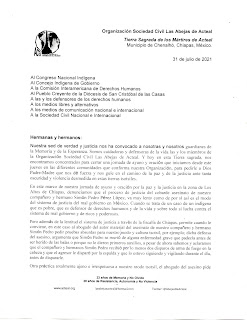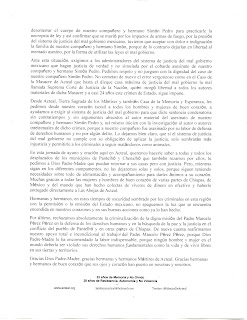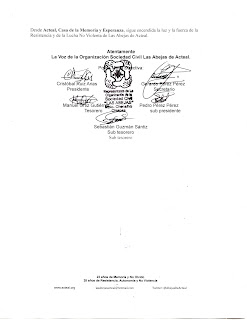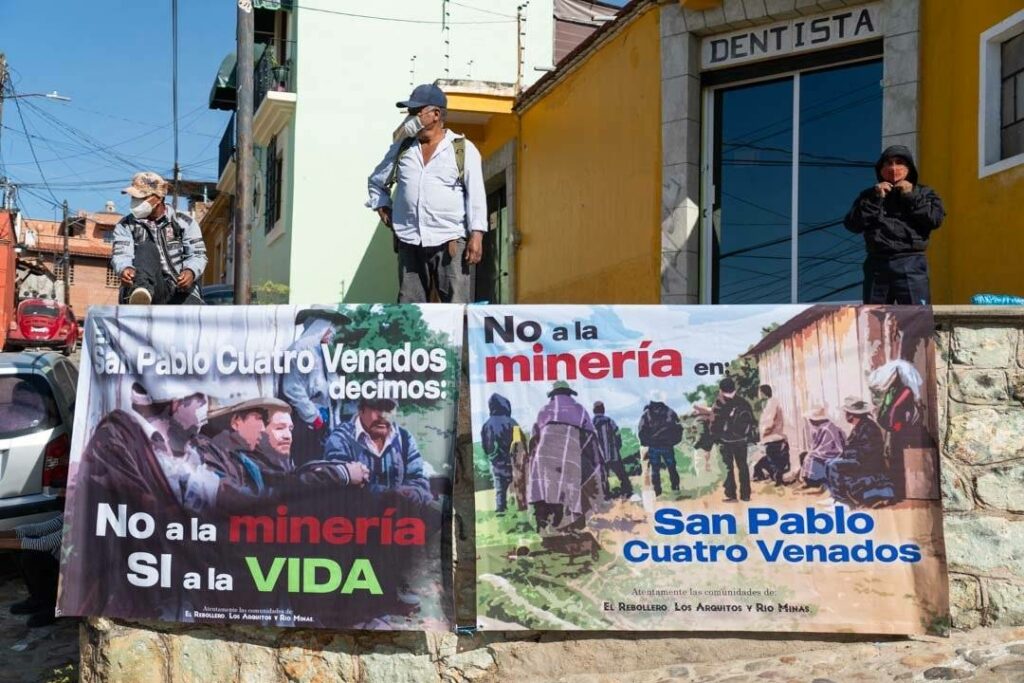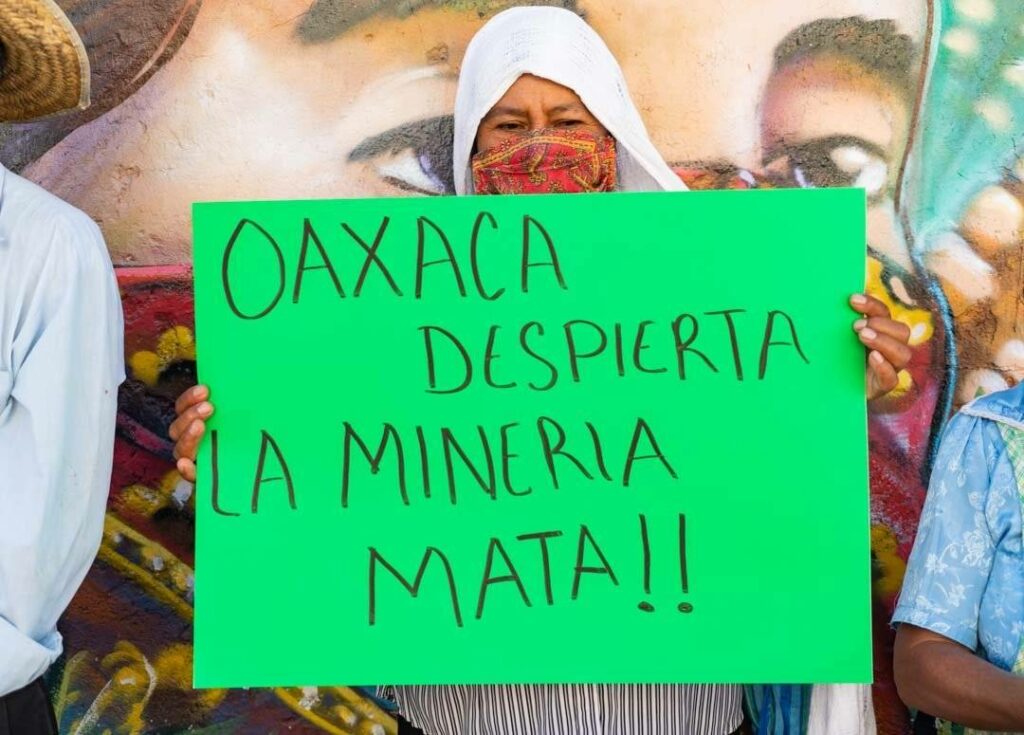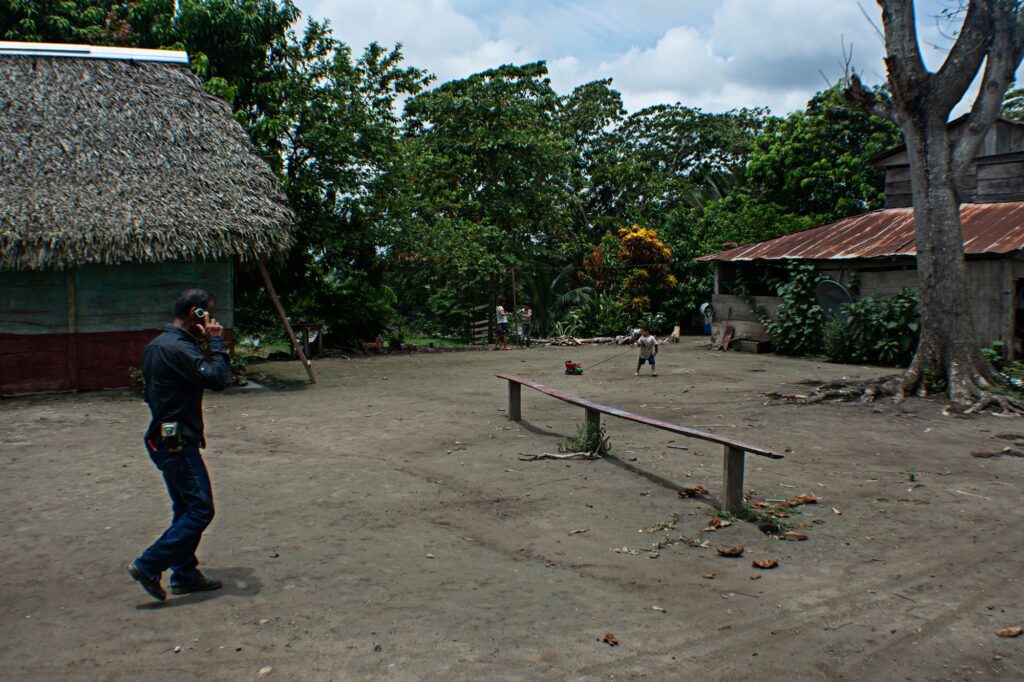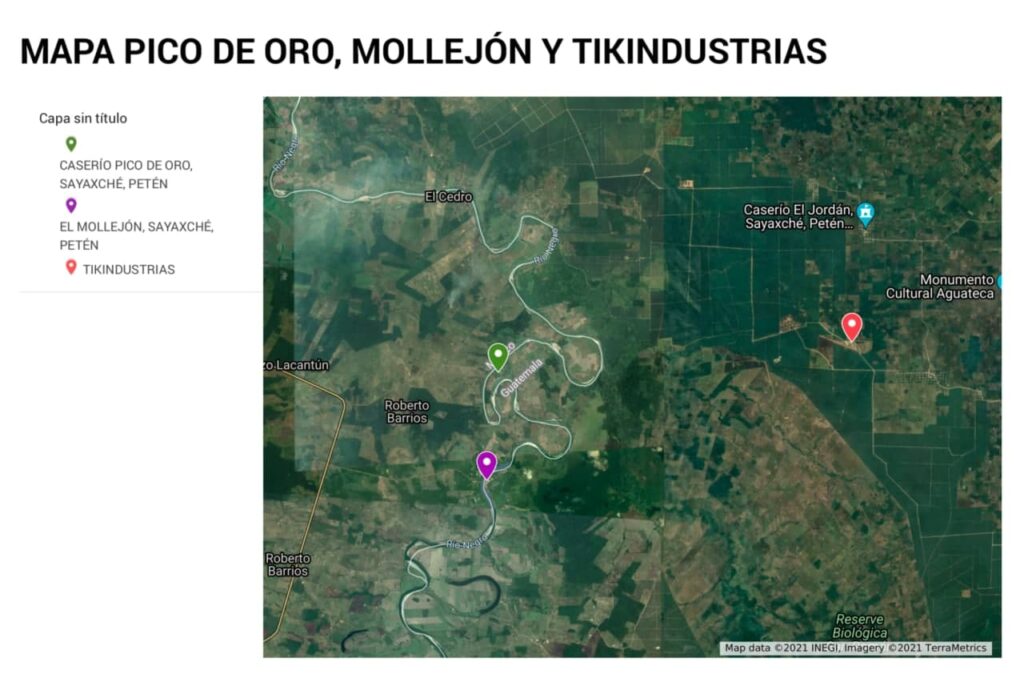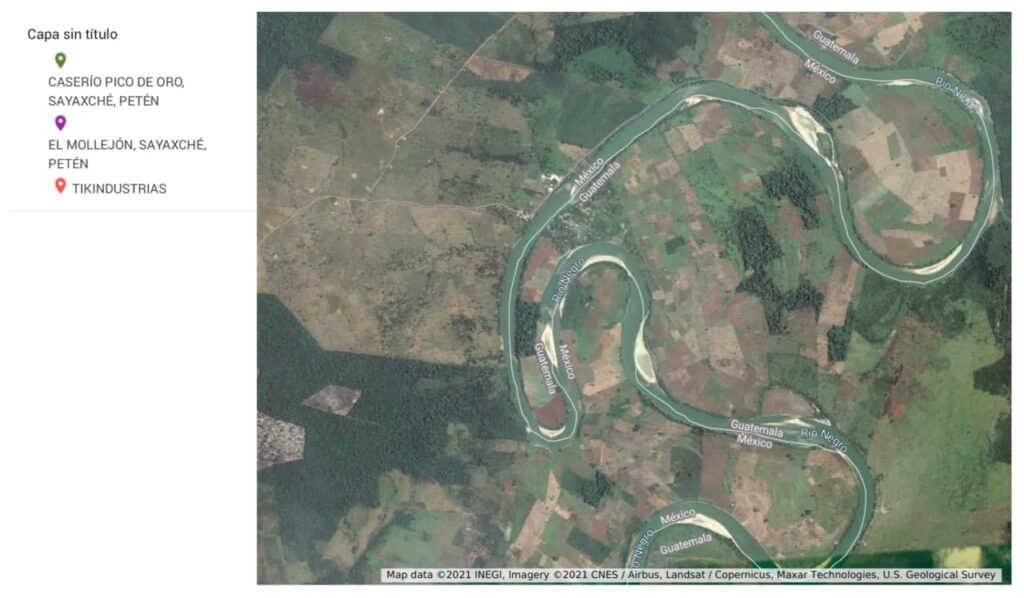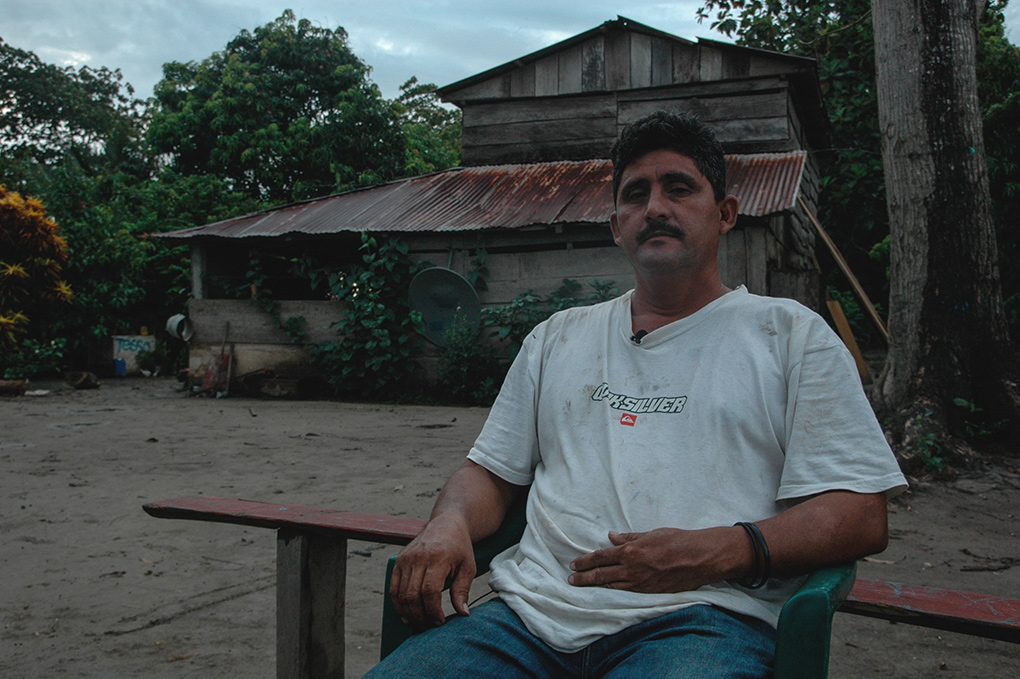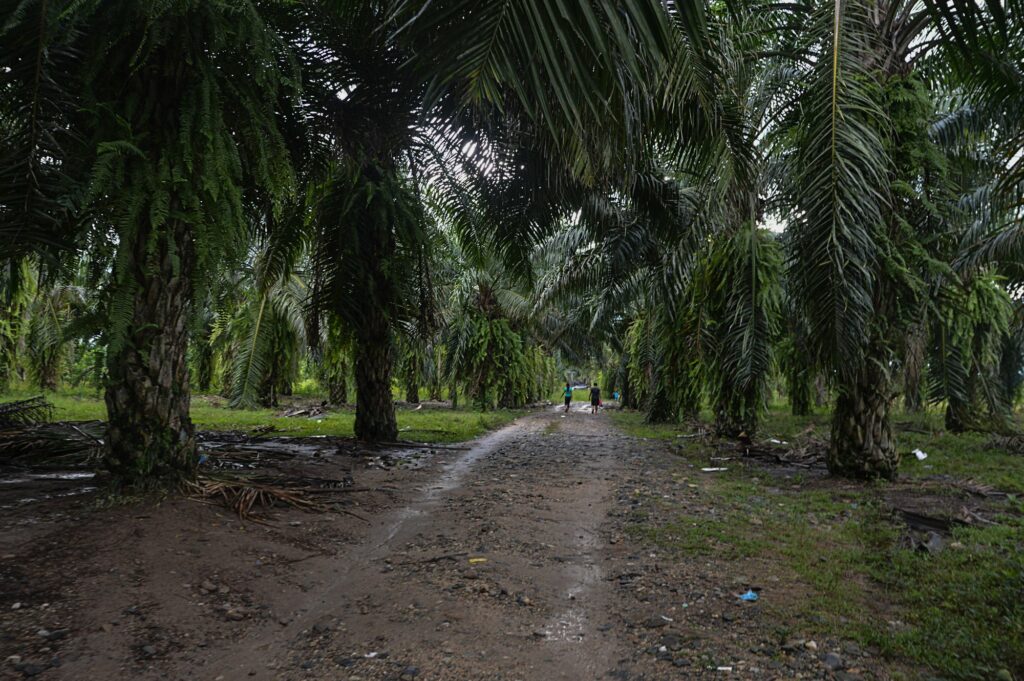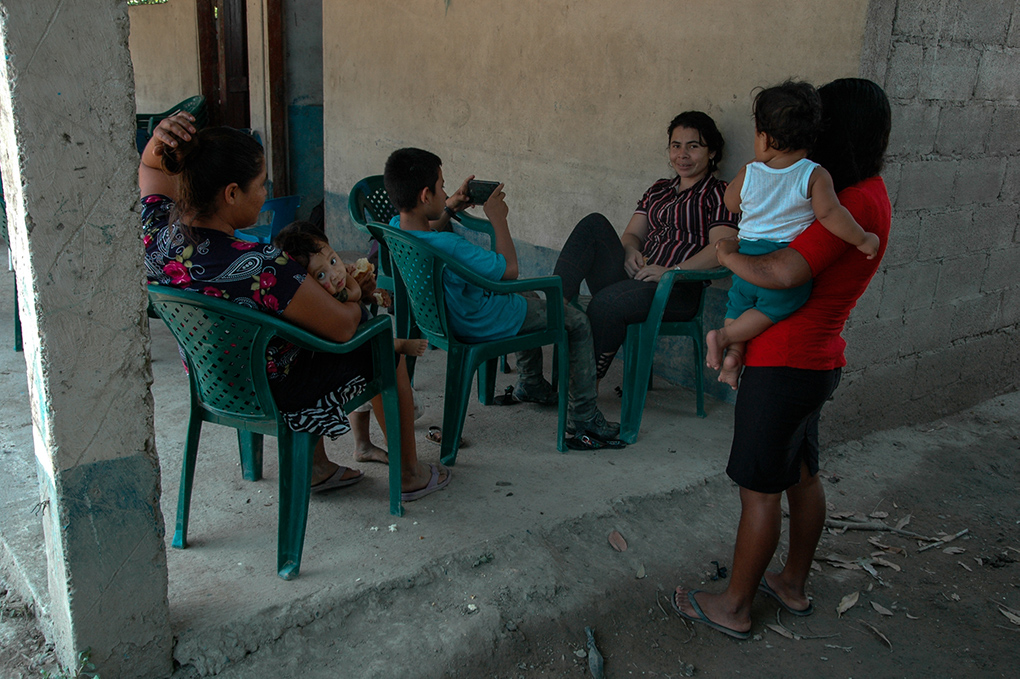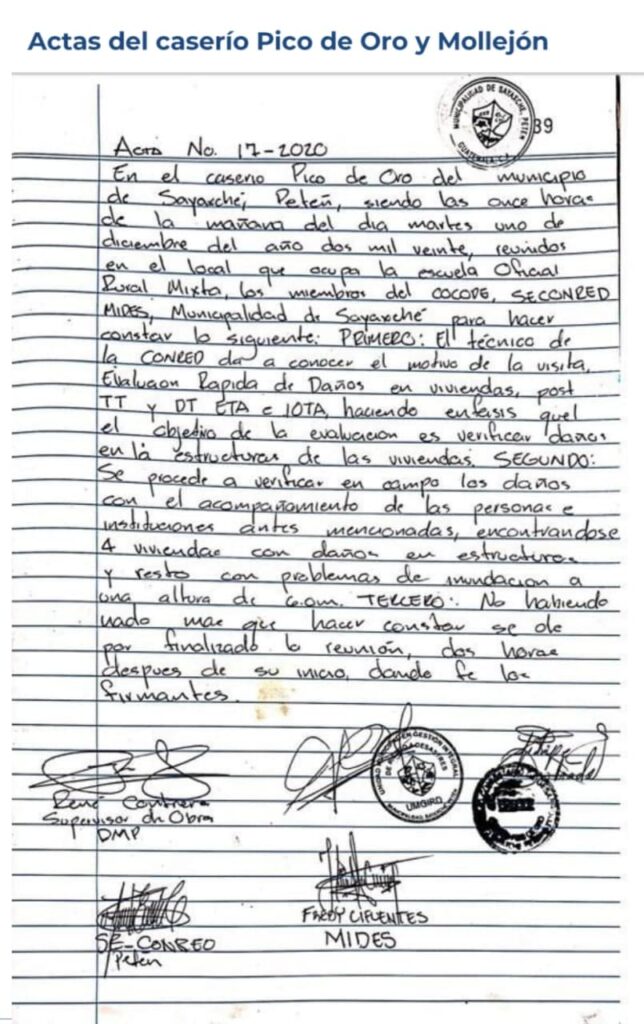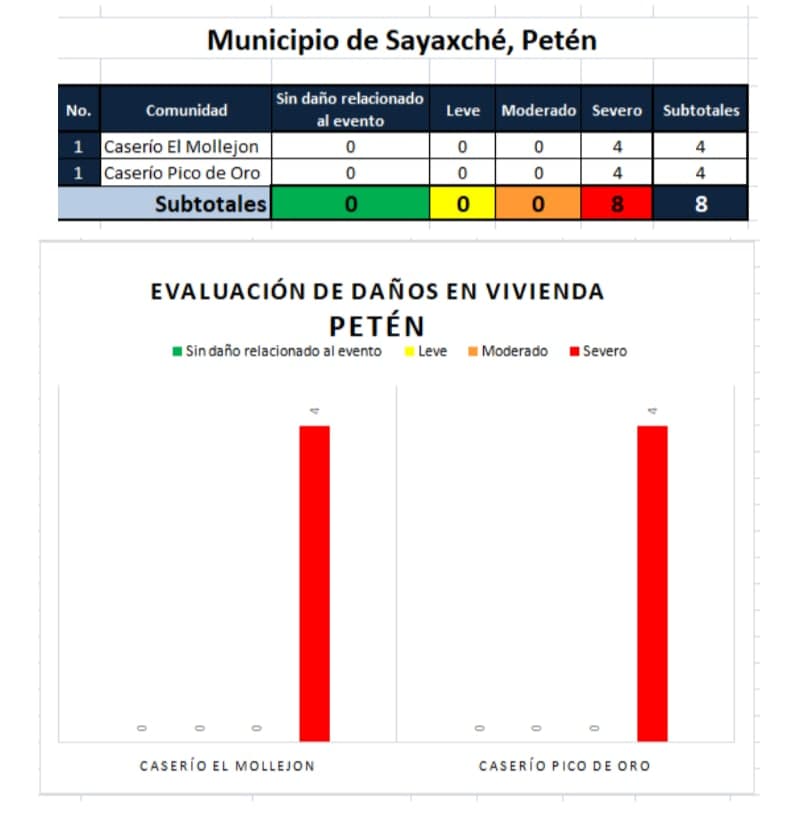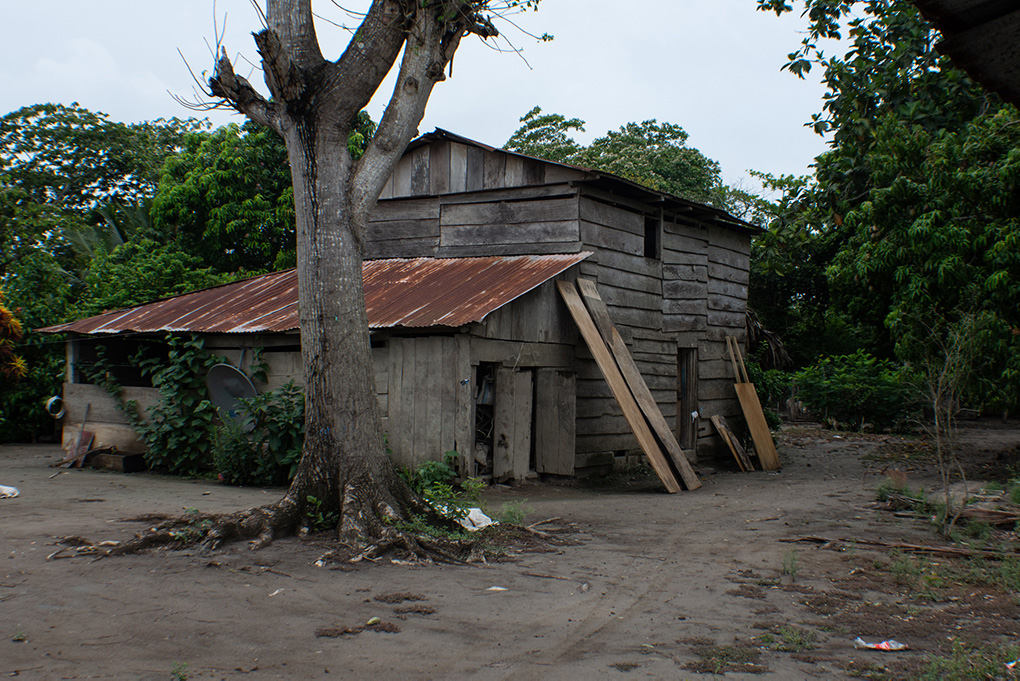
militarización
(Español) Comunicado del Ejido Tila, en conmemoración de los 87 años del nacimiento del Ejido
Ejido Tila, Chiapas, México; a 28 de julio de 2021. Comunicado del ejido tila
En conmemoración de los 87 años del nacimiento del ejido.
A los medios de comunicación nacional e internacional.
A los defensores de los derechos humanos nacional e internacional. Al congreso nacional indígena.
Al consejo indígena de gobierno.
A los pueblos originarios de México que luchan por tierra y territorio.
Compañeros y compañeras de las organizaciones de México y el mundo no gubernamentales desde el corazón del pueblo originario lengua chol les enviamos un cordial saludo a todos y a todas en la defensa de la tierra y territorio por acuerdo de la asamblea general extraordinaria con fecha 18 de julio de 2021 se acordó celebrar los 87 años de aniversario del nacimiento del ejido tila los 836 capacitados fueron reconocidos mediante la resolución presidencial de 30 de julio de 1934 y así mismo fue publicado en el diario oficial de la federación martes 16 de octubre del mismo año para que tengan conocimiento los 32 estados de nuestro país México.
Para celebrar se acordó en la asamblea general de ejidatarios, salir en las calles dentro del núcleo de población ejidal, llegando hasta la plaza cívica ejidal para continuar nuestra celebración de nuestro documento federal.
La esencia de la historia de los mexicanos es la tierra, nuestros pueblos han luchado por ella y lo han defendido porque es el futuro de México y sin duda sus campos y sus campesinos desde el principio son los que han venido trabajando las tierras que se posee no son enajenables, sino que es para gozar en la vida cotidiana, los pueblos son los que eligieron sus autoridades en su convivencia colectiva y tienen legitimidad, al llegar la conquista española llego el mandar de Santi esteban el 26 de mayo de 1567 ordeno a la municipalidad para el nuevo asentamiento humano Española y la medición de sus cementeras de 500 a 600 varas, igualmente fray pedro Lorenzo de la nada fue comisionado del rey de España para evangelizar a nuestros tatarabuelos con el control de la religión para fundar el nuevo asentamiento humano de la nueva España en el año de 1563 pero el pueblo chol de tila mantenía su propio credo espiritual y resistieron el adoctrinamiento el señor cura don miguel hidalgo no le pareció la esclavitud la marca y el azote y ser acasillado y mozo declaro la guerra contra los españoles en el año de 1810 para romper la cadena de la esclavitud de nuestro país México de esta manera se logró la independencia para ser reconocidos como mexicanos y mexicanas de por si los pueblo originarios somos la existencia antes de la fundación de los estados mexicanos.
Con la resolución presidencial es la herencia más grande que nos dejaron nuestros bisabuelos que caminaron durante 40 años de tila a Tuxtla para legalizar el estado que guarda el ejido pero los pasados malos gobiernos en sus tres niveles no tuvieron gobernabilidad de reubicar el municipio en su origen para no engañar pobladores y avecindados en terrenos ejidales, en la actualidad nos señalan como culpables violando derechos humanos cuando somos nosotros que
llevamos más de 75 años de injusticias sobre el despojo de nuestras tierras ejidales estuvo bajo el control de un municipio sin legalidad dentro de nuestro pueblo chol, los ayuntamientos municipales sin tener legalidad su administración extendieron escrituras privadas de los solares y viviendas y departamentos agrarios y colonización en una forma más corrupta elaboro un plano regulador y le ordeno al h. cuerpo consultivo agrario insertar la nota y el punto de acuerdo que el caserío del poblado tila no forma parte del ejido considerándose como fundo legal con fecha 30 de septiembre de 1966 y con otra corrupción levantan una acta con fecha de 26 de enero de 1965 que la asamblea general de ejidatarios cedieron el terreno del fundo legal pero por obvias razones que el ejido no tiene copias en el archivo, el ayuntamiento municipal de 1966 sabía que no tenía legalidad solicito la demarcación ante la secretaria de la reforma agraria para demarcar las 130 hectáreas el 9 de marzo de 1966 con esos documentos y escritos falsos se presentó el ayuntamiento municipal de 1980 ante la cuarta legislatura del estado de Chiapas para solicitar la expropiación de las 130 hectáreas con fecha 29 de julio de 1980 y el gobierno del estado lo publico en su diario oficial el 17 de diciembre de 1980.
Con la resolución presidencial y el diario oficial y acta de posesión de 28 de diciembre de 1936
Acta de deslinde definitivo con fecha 5 de abril de 1959 y la aprobación del plano original sin nota y punto de acuerdo de 2 de junio de 1961. con el art. 1 de la constitución política son nuestros garantías individuales y de acuerdo con el art. 14 y 16 de la misma que garantizo la posesión de los 836 capacitados con estos elementos se presentó un amparo 890/1977 para impugnar la nota y el punto de acuerdo y el recurso de revisión el toca 125/88 y en 1990 se nos concedió la sentencia de la resolución de 9 de marzo de 1994 el h. cuerpo consultivo agrario dejo insubsistente la nota y el punto de acuerdo y así mismo se presentó el amparo 259/1982 el 16 de diciembre de 2008 la justicia de la unión nos concedió la sentencia en una forma liso y llano porque fue positivo la fragante violación por un fundo legal inconstitucional.
El 22 de enero se tramito por vía de cumplimiento sustituto por la mala asesoría del abogado y de acuerdo a los peritajes llego a una valoración de pago de 40 millones de pesos la asamblea general desistió el cumplimiento sustituto se presentó el incidente de inejecución 1302/2010 y se presentó recurso de queja núm. 34/2010, el 12 de septiembre de 2018 fue discutido en la primera sala de la suprema corte de justicia de la nación la presidenta ministra norma lucia piña Hernández por la votación de los 5 ministros se declaró que las 5405 hectáreas es legitima propiedad de los 836 capacitados por los documentos federales se logro retirar la base militar, la oficina de PGR, y la oficina de la subsecretaria de gobierno y la expulsión del ayuntamiento municipal y las entradas de las casillas electorales 2018 – 2021. Y con estos elementos que guarda el estado ejidal, y como originario tomamos el articulo 2 a) fracción II el derecho de la libre determinación y la autonomía, reconocer nuestras propias autoridades elegidos de acuerdos a usos y costumbres. Asimismo el articulo 39 pudimos recuperar la soberanía de nuestra patria chica que lo querían desaparecer para la utilidad pública y el eco turista.
Compañeros y compañeras en la actualidad recibimos mucha difamación y calumnias por personas que han traicionado el ejido y se cambia de nombre en las redes sociales, porque tiene conocimiento la asamblea de quienes son estas personas y conocen de las falsificaciones de documentos, con esto pone en peligro la vida de los compañeros porque expone al público, en caso de que le pase algo, alguno de nuestros compañeros ejidatarios será el responsable porque ya se está identificado por los compañeros ejidatarios.
pero nunca menciona que sufrimos un conflicto armado en el año de 1981. Sufrimos un atentado en el año de 1999 por la organización paramilitar paz y justicia que en ese entonces fue coordinado por el presidente municipal, de la misma manera el pueblo chol sufrimos el bombardeo de gas lacrimógenos y con la presencia de 20 convoyes de las sectoriales de 2005. Del narco candidato a la presidencia municipal y la contratación de camionadas de encapuchados con armas de fuego de 2015. Un narco presidente municipal periodo 2012 – 2015. Todo el asesinato que cometió la policía municipal durante que estuvo usurpando la administración ejidal, ciertamente hay una que no lo menciona porque son financiados por el ayuntamiento municipal, hoy en día son amenazados por grupos armados de la comunidad misija, cantioc, rio grande, unión Juárez y la población y asimismo aclaramos en todo los medios que los documentos presidenciales y la ejecución de amparo 259/1982. No se dialoga mucho menos negociarlo ni levantar un convenio si no que se ejecuta la ley federal de amparos porque es legalmente territorio ejidal, no es de pandilleros ni de narcomenudistas, en la actualidad vemos lo que está aconteciendo nuestros hermanos y hermanas del pueblo de panthelo Chiapas y chenalho que son pueblos originarios de lengua tzotzil y tojolabal, por ello exigimos el respeto del convenio 169 de la OIT sobre derechos de los pueblos indígenas y debemos ser salva guardados por el artículo 21 de la convención interamericana.
Sin más que decir agradecemos la solidaridad el acompañamiento en lucha por la vida, nunca más un México sin nosotros.
Atentamente
Tierra y libertad
Ejido Tila
(Español) Denunciamos que el proceso de justicia del cobarde asesinato de nuestro compañero y hermano Simón Pedro Pérez López, va muy lento
Organización Sociedad Civil Las Abejas de Acteal
Tierra Sagrada de los Mártires de Acteal
Municipio de Chenalhó, Chiapas, México.
31 de julio de 2021
Al Congreso Nacional Indígena
Al Concejo Indígena de Gobierno
A la Comisión Interamericana de Derechos Humanos
Al Pueblo Creyente de la Diócesis de San Cristóbal de las Casas
A las y los defensores de los derechos humanos
A los medios libres y alternativos
A los medios de comunicación nacional e internacional
A la Sociedad Civil Nacional e Internacional
Hermanas y hermanos:
Nuestra sed de verdad y justicia nos ha convocado a nosotras y nosotros guardianes de la Memoria y de la Esperanza. Somos cuidadoras y defensoras de la vida las y los miembros de la Organización Sociedad Civil Las Abejas de Acteal. Y hoy en esta Tierra sagrada, nos encontramos concentrados para cerrar una jornada de ayuno y oración que iniciamos desde este jueves en las diferentes comunidades que conforma nuestra Organización, para pedirle a Dios Padre-Madre que nos dé fuerza y nos guíe en el camino de la paz y de la justicia ante tanta oscuridad y violencia desmedida en estas tierras tsotsiles.
En este marco de nuestra jornada de ayuno y oración por la paz y la justicia en la zona de Los Altos de
Chiapas, denunciamos que el proceso de justicia del cobarde asesinato de nuestro compañero y hermano
Simón Pedro Pérez López, va muy lento como de por sí así es el modo del sistema de justicia del mal
gobierno en México. Cuando se trata de un caso de un indígena que es pobre, que es defensor de derechos
humanos y de la vida y sobre todo si lucha contra el sistema de mal gobierno y de ricos y poderosos.
Pero además de la lentitud el sistema de justicia a través de la fiscalía de Chiapas, permite cuando le conviene, en
este caso al abogado del autor material del asesinato de nuestro compañero y hermano Simón Pedro pedir pruebas
absurdas para nuestro modo y cultura tsotsil, por ejemplo; dicha defensa del asesino, argumenta que Simón Pedro se
murió de alguna enfermedad grave que padecía antes de ser herido de las balas o porque no le dieron primeros
auxilios, a pesar de ahora sabemos y aclaramos que el compañero y hermanos Simón Pedro recibió por lo menos
dos disparos de arma de fuego en la cabeza y que el agresor le disparó por la espalda y que lo estuvo siguiendo y
vigilando durante el día, antes de dispararle.
Otra práctica totalmente ajeno e irrespetuosa a nuestro modo tsotsil, el abogado del asesino pide
desenterrar el cuerpo de nuestro compañero y hermano Simón Pedro para practicarle la necropsia de ley y
así confirmar que se murió por los impactos de armas de fuego, por la presión del sistema de justicia del
mal gobierno mexicano, tuvieron que aceptar con dolor e indignación la familia de nuestro compañero y
hermano Simón, porque de lo contrario dejarían en libertad al mentado asesino, por la forma de utilizar
las leyes el mal gobierno.
Ante esta situación, exigimos a los administradores del sistema de justicia del mal gobierno mexicano que
hagan justicia de verdad y no simulada por el cobarde asesinato de nuestro compañero y hermano Simón
Pedro. Pedimos respeto y no jueguen con la dignidad del caso de nuestro compañero Simón Pedro. No
cometan de nuevo el error vergonzoso como en el Caso de la Masacre de Acteal que hasta el dizque casa
máxima de justicia del mal gobierno la mal llamada Suprema Corte de Justicia de la Nación, quién otorgó
libertad a todos los autores materiales de dicha Masacre y a casi 24 años este crimen de Estado, sigue
impune.
Desde Acteal, Tierra Sagrada de los Mártires y también Casa de la Memoria y Esperanza, les pedimos
desde nuestro corazón tsotsil a todos los hombres y mujeres de buen corazón, a ayudarnos a exigir al
sistema de justicia del mal gobierno para que dicte sentencia condenatoria sin contratiempos y sin
argumentos absurdos al autor material del asesinato de nuestro compañero y hermano Simón Pedro y, así
mismo inicien con la investigación al autor o autores intelectuales de dicho crimen, porque a nuestro
compañero fue asesinado por su labor de defensa de derechos humanos y no por algún delito. Lo dejamos
bien claro, que si el sistema de justicia del mal gobierno no cumple con su obligación de aplicar la
justicia, solo sembrarán más injusticia y permitirle a los criminales a seguir matándonos como animales.
En esta jornada de ayuno y oración aquí en Acteal, queremos hacerle saber a todas y todos los
desplazados de los municipios de Pantelhó y Chenalhó que también rezamos por ellos, le pedimos a Dios
Padre-Madre que puedan retornar a sus casas pero con justicia. Pero, mientras sigan en los diferentes
campamentos, no
las dejaremos solas y solos, porque siguen teniendo necesidades sobre todo de alimentación y
acompañamiento para darles ánimos a su corazón. Muchas gracias a todas las mujeres y hombres de buen
corazón de varias partes de Chiapas, de México y del mundo que han hecho colectas de víveres de dinero
en efectivo y haberlo entregado directamente a Las Abejas de Acteal.
Hermanas y hermanos, en estos tiempos de oscuridad sembrado por los criminales en esta región con la
permisión o la omisión del Estado mexicano, no apaguemos la luz que se encuentra encendida en nuestros
corazones y en sus buenas acciones como ya lo han hecho.
Por último, rechazamos absolutamente la criminalización de la digna misión del Padre Marcelo Pérez
Pérez en la defensa de los derechos humanos y en la búsqueda de la paz y la justicia en el conflicto del
pueblo de Pantelhó y en otras partes de Chiapas. De nueva cuenta reafirmamos nuestro apoyo total e
incondicional al trabajo del Padre Marcelo Pérez Pérez, porque Dios Padre-Madre le ha encomendado la
labor indispensable, porque ningún hombre y mujer en el mundo debería ser violado sus derechos
humanos fundamentales como la vida y de vivir libres en sus tierras y territorios.
Gracias Dios Padre-Madre, gracias hermanas y hermanos Mártires de Acteal. Gracias hermanas y
hermanos de buen corazón que sus ojos y corazón han puesto en nosotras y nosotros.
Desde Acteal, Casa de la Memoria y Esperanza, sigue encendida la luz y la fuerza de la Resistencia y
de la Lucha No Violenta de Las Abejas de Acteal.
Atentamente
La Voz de la Organización Sociedad Civil Las Abejas de Acteal.
Por la Mesa Directiva:
Cristóbal Ruiz Arias Gerardo Pérez Pérez
Presidente Secretario
Manuel Ortiz Gutiérrez Pedro Pérez Pérez
Tesorero sub presidente
Sebastián Guzmán Sántiz
Sub tesorero




